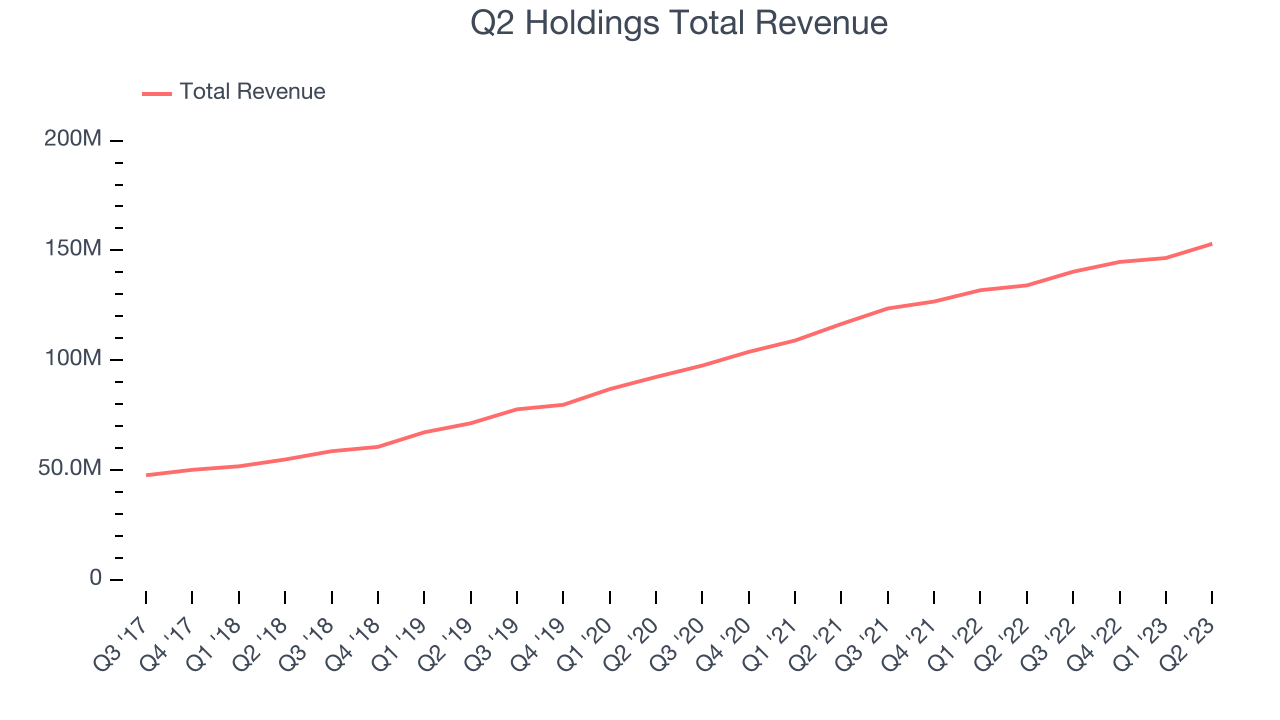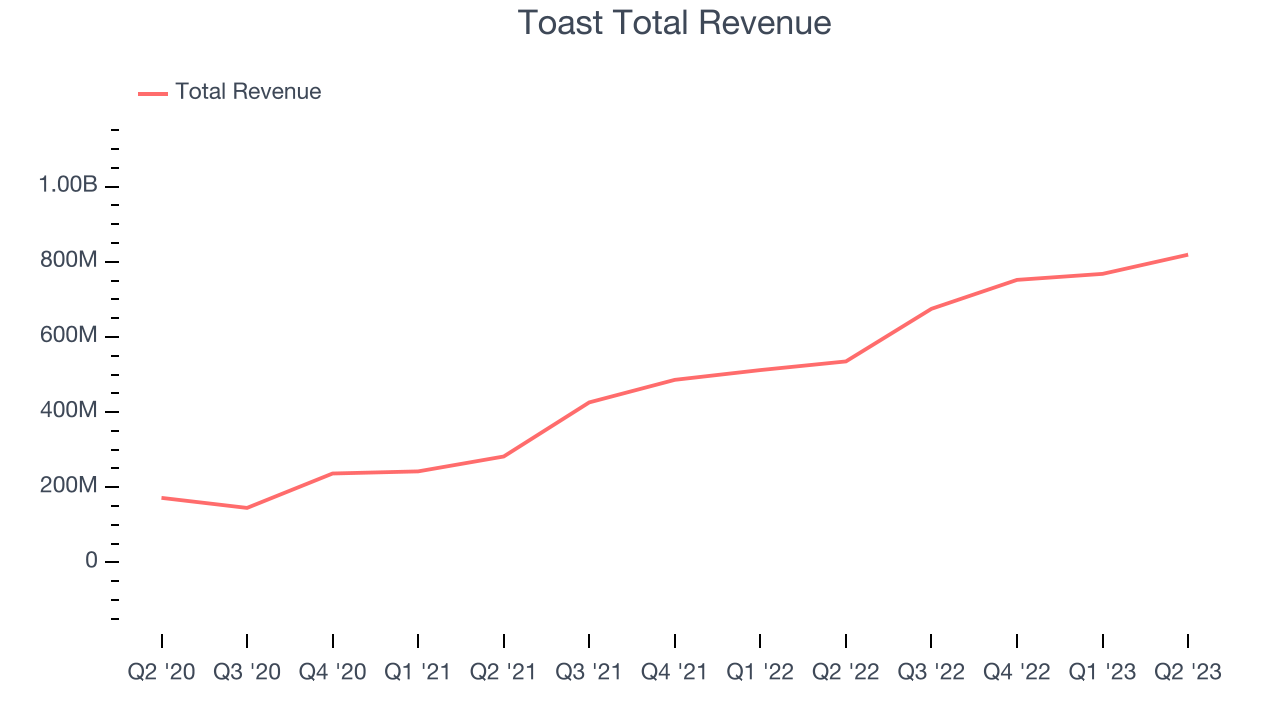The end of an earnings season can be a great time to assess how companies are handling the current business environment and discover new stocks. Let’s have a look at how Q2 Holdings (NYSE:QTWO) and the rest of the vertical software stocks fared in Q1.
Software is eating the world, and while a large number of solutions such as project management or video conferencing software can be useful to a wide array of industries, there are industries that have very specific needs. Whether it is life-sciences, education or banking, the demand for so called vertical software, addressing industry specific workflows, is growing, fueled by the pressures on improving productivity and quality of offerings.
The 17 vertical software stocks we track reported a mixed Q1; on average, revenues beat analyst consensus estimates by 2.61%, while on average next quarter revenue guidance was 0.07% under consensus. Increasing interest rates hurt growth companies as investors search for near-term cash flows, but vertical software stocks held their ground better than others, with the share prices up 15.9% since the previous earnings results, on average.
Q2 Holdings (NYSE:QTWO)
Founded in 2004 by Hank Seale, Q2 (NYSE:QTWO) offers software as a service that enables small banks provide online banking and consumer lending services to their clients.
Q2 Holdings reported revenues of $153 million, up 14.1% year on year, beating analyst expectations by 1.95%. It was a weak quarter for the company, with revenue guidance for the next quarter and the full year missing analysts' expectations.
“We delivered strong financial results and sales execution in the first quarter, in spite of a complex backdrop in the regional and community banking space," said Q2 CEO Matt Flake.

Q2 Holdings delivered the weakest full year guidance update of the whole group. The stock is up 33.8% since the results and currently trades at $30.78.
Read our full report on Q2 Holdings here, it's free.
Best Q1: Toast (NYSE:TOST)
Founded by three MIT engineers at a local Cambridge bar, Toast (NYSE:TOST) provides integrated point of sale (POS) hardware, software, and payments solutions for restaurants.
Toast reported revenues of $819 million, up 53.1% year on year, beating analyst expectations by 7.22%. It was a very strong quarter for the company, with a solid beat of analyst estimates and very optimistic guidance for the next quarter.

Toast achieved the highest full year guidance raise among its peers. The stock is up 15% since the results and currently trades at $22.4.
Is now the time to buy Toast? Access our full analysis of the earnings results here, it's free.
Weakest Q1: nCino (NASDAQ:NCNO)
Founded in 2011 in North Carolina, nCino (NASDAQ:NCNO) makes cloud-based operating systems for banks and provides that software as a service.
nCino reported revenues of $113.7 million, up 20.7% year on year, in line with analyst expectations. It was a weak quarter for the company, with underwhelming revenue guidance for the next quarter. The full-year revenue guidance was roughly in line. Similarly, earnings per share guidance for both the next quarter and the full year were in line with market expectations.
The stock is up 11.3% since the results and currently trades at $30.56.
Read our full analysis of nCino's results here.
Veeva Systems (NYSE:VEEV)
Built on top of Salesforce as one of the first vertical-focused cloud platforms, Veeva (NYSE:VEEV) provides data and customer relationship management (CRM) software for organizations in the life sciences industry.
Veeva Systems reported revenues of $526.3 million, up 4.2% year on year, beating analyst expectations by 1.74%. It was a mixed quarter for the company, with a decent beat of analyst estimates but a decline in gross margin.
The stock is up 17.6% since the results and currently trades at $194.81.
Read our full, actionable report on Veeva Systems here, it's free.
Unity (NYSE:U)
Started as a game studio by three friends in a Copenhagen apartment, Unity (NYSE:U) is a software as a service platform that makes it easier to develop and monetize new games and other visual digital experiences.
Unity reported revenues of $500.4 million, up 56.3% year on year, beating analyst expectations by 4.28%. It was a solid quarter for the company, with a decent beat of analyst estimates and very optimistic guidance for the next quarter.
Unity pulled off the fastest revenue growth among its peers. The stock is up 39.9% since the results and currently trades at $40.18.
Read our full, actionable report on Unity here, it's free.
The author has no position in any of the stocks mentioned
